 Dhyan chand united with the army at the age of 16 and this proved a spinning spot of his carrier. It was from that time that Dhyan Chand started playing hockey.
 Later than that Dhyan chand rose in the hockey field like a meteor. This became a significant high point of his carrier.
 Dhyan Chand was born in Prayag, now called as Allahabad. He belongs to a Punjabi Rajput family. He was the senior brother of one more player Roop Singh. His father was called Sameshwar Dutt Singh and he was in the Indian Army. He played hockey in the army.
 There were two brothers for Dhyan Chand namely Mool Singh, and Roop Singh. For the reason of Sameshwar Dutt's frequent army transfers, the family unit had to move about to diverse cities and as such Chand had to come to an end of his learning subsequent to only six years of education. The family as a final point settled in Jhansi, Uttar Pradesh, India.
 Chand went to the Indian Army at the age of 16. Exactly from his early days he had a attraction for sports. He sustained playing hockey in the army.
 Amid 1922 and 1926, Chand completely played army hockey tournaments and regimental games. Chand was in due course elected for the Indian Army team which was to tour New Zealand. The players won 18 matches, draw 2 and gone astray only 1, in receipt of honor from each and every one of the viewers. Next to this, in the two test matches in opposition to the New Zealand group, the team won the first and by a whisker mislaid the second. Returning to India, Chand was without more ado promoted to Lance Naik.
 Behind effectively lobbying for reintroducing field hockey in the Olympics, the just this minute created Indian Hockey Federation (IHF) made arrangements to send its most excellent likely group for the 1928 Amsterdam Olympics. In 1925, an Inter-Provincial Tournament was held to decide on India's national field hockey team. Chand got acquiescence from the Army to participate for the United Provinces team.  Buoyed by the achievement of the contest, it was determined that it would be held every two years. Following two more test matches among an assortment of hopefuls, the Olympic team (counting Chands as center-forward) was announced and assembled in Bombay.  In 1928, Amsterdam Summer Olympics, the Indian team was set in the splitting up A table, with Austria, Belgium, Denmark and Switzerland. On May 17 the Indian national hockey team completed its Olympic first appearance in opposition to Austria, winning 6-0, with Chand scoring 3 goals. The subsequently day India overpowered Belgium 9-0; on the other hand Chand only scored once. On May 20, Denmark lost to India 5-0, with Chand getting 3 goals. Two days later on, he scored 4 goals when India overwhelmed Switzerland 6-0 in the semi-finals.  The concluding match took place on May 26, with India in front of the home players of the Netherlands. Many players were sick but still India managed to conquer the hosts 3-0 with Singh scoring 2, and the Indian team won its country's first Olympic gold medal. Chand was the crown scorer of the contest by great outskirts, scoring 14 goals in 5 matches. Chand received information that he had been chosen by the IHF for the Olympic team with not any official procedure.
 On 4th August 1932, India played its first match in opposition to Japan and won 11-1. Chand, Roop Singh, Gurmit Singh every one scored thrice, and Dickie Carr once. In the finals on August 11, India played next to hosts USA.  India won 24-1, a world record at that time, and on one occasion again clinched the gold medal. Chand scored 8 times, Roop Singh 10, Gurmit Singh 5 and Pinniger once. The team then went on a visit of the United States. They played a contest on August 20 in opposition to a United States XI, more or less the identical team that they had faced in Los Angeles  The team won 24-1. Later than setting sail from New York, the team came to England. They then embarked on a hectic tour, playing nine matches in a mixture of countries in a fortnight, beginning on September 2. At the conclusion of the tour, India had played 37 matches, captivating 34, drawing 2, with one deserted. Chand got 133 goals of the 338 Indian goals.
 Chand died in 1979 at the age of 74. In 1951, Captain Dhyan Chand was privileged at the National Stadium–with Dhyan Chand competition. In 1956, at the age of 51, he got retired from the army with the grade of Major.  The Government of India pleased him the identical year by conferring him the Padma Bhushan, India's third highest civilian honors.Later than giving up work, he qualified at training camps at Mount Abu, Rajasthan. Later on, he acknowledged the position of Chief Hockey Coach at the National Institute of Sports, Patiala, a position he held for quite a few years.  Chand used up his last days in his place of birth at Jhansi, Uttar Pradesh, India. Dhyan Chand died on 3rd December, 1979 at the All India Institute of Medical Sciences, Delhi. He was cremated at the Jhansi Heroes earth in his place of origin, following some preliminary troubles in receiving permission. His division, the Punjab Regiment, accorded him full military honors.
|

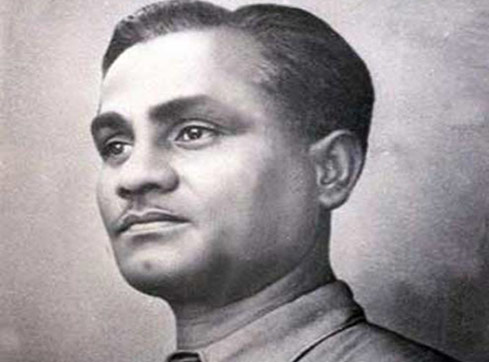
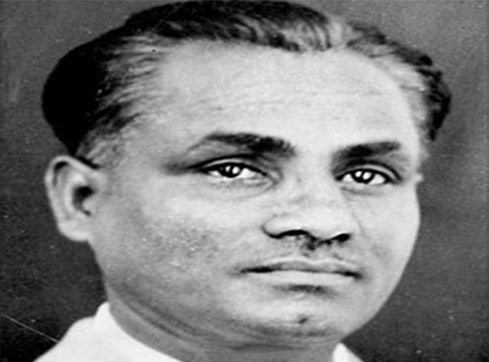
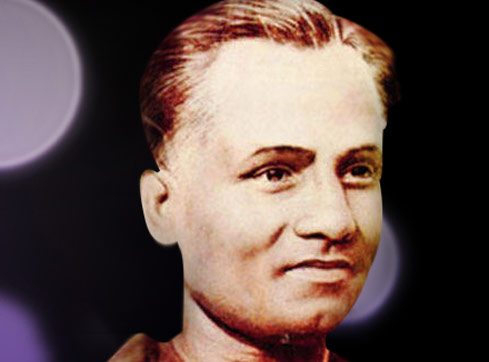

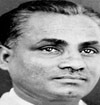
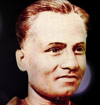
 Dhyan chand united with the army at the age of 16 and this proved a spinning spot of his carrier. It was from that time that Dhyan Chand started playing hockey.
Dhyan chand united with the army at the age of 16 and this proved a spinning spot of his carrier. It was from that time that Dhyan Chand started playing hockey.